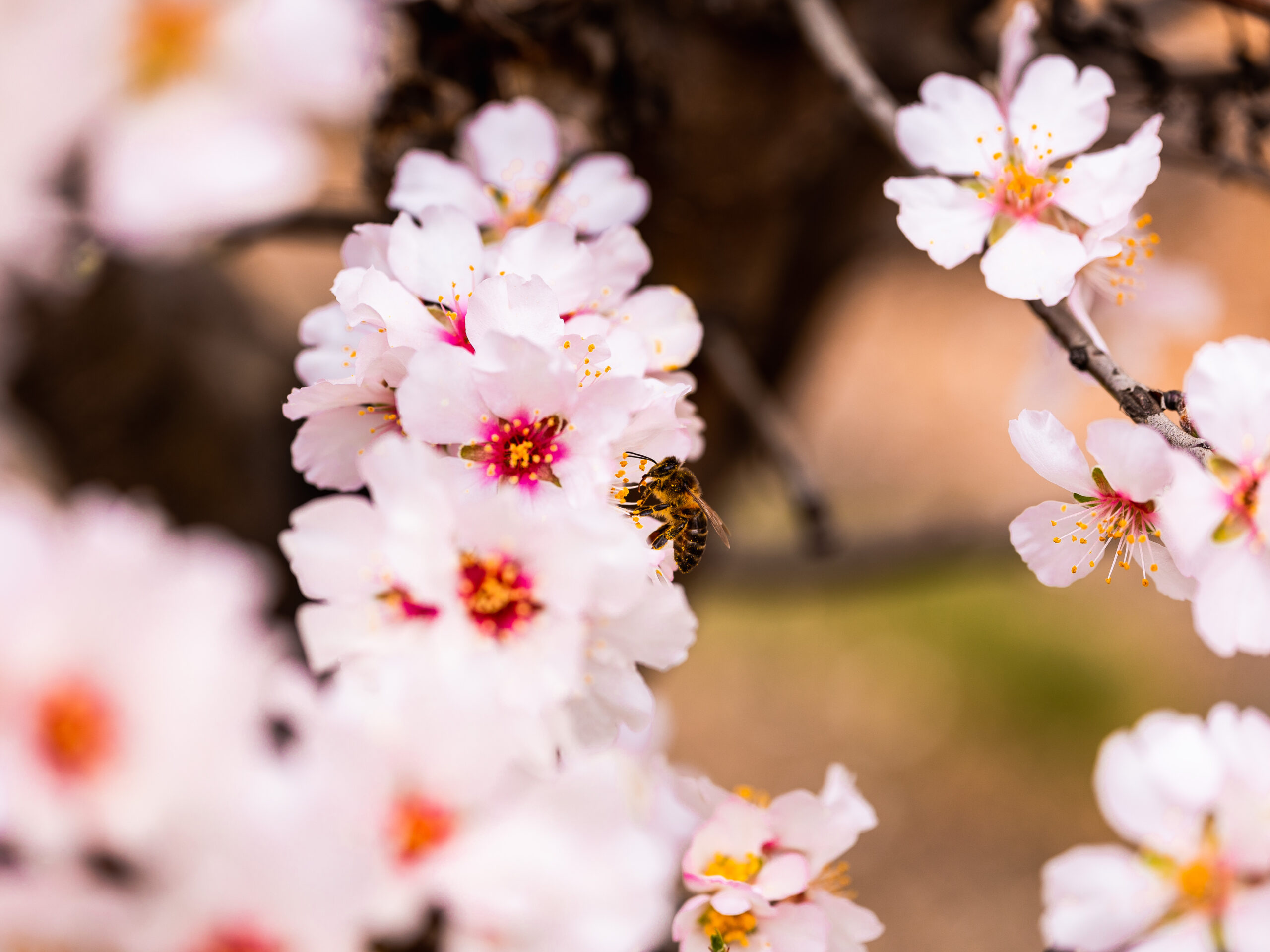
Veracruz joined Operation Pollinator (OP) program hoping to boost the number of bees, pollinators and beneficial insects on almond orchards. Researchers at the University of Coimbra will assess the impact of OP field margins on the overall biodiversity of Veracruz orchards and almond production.
The Veracruz group produces, transforms, and distributes premium almonds of Mediterranean varieties. Its strategy is based on the union of technology and agriculture, with 1300 hectares of orchard installed in Fundão and Idanha-a-Nova, Centre of Portugal, and a young and multidisciplinary team. Despite using auto fertile almond varieties, the company believes that attracting pollinators can be beneficial for almond production.
“One of our values is to support scientific knowledge to help us improve the yield, quality and sustainability of our almonds. By joining the Operation Pollinator program, we want to better understand how sowing different species of plants on the margins of our orchard fields can attract pollinators. Additionally, we want to assess their real value for the almond crop”, Gustavo Ramos, general manager at Veracruz reports.
“We aim to share knowledge and good farming practices with other farmers. We believe that partnerships like this one, with Syngenta and the University of Coimbra, are vital for the future of agriculture”, Gustavo Ramos says.
OP field margins were sown at Veracruz orchards in October 2021 and from that date researchers from the University of Coimbra have been identifying and counting groups of pollinators. The counting is made before and during the flowering of the margin, at different distances within the crop. This is to assess the impact on the pollinators’ community and the ecosystem services provided to the orchards.
“Functional margins such as those developed in Operation Pollinator program are a local practice that promotes biodiversity. It can therefore be a conservation action while promoting functional communities which are providing services to adjacent agricultural systems”, Sílvia Castro, a researcher at Centre for Functional Ecology, an R&D unit of the University of Coimbra, reports.
For over fifteen years, Operation Pollinator has created essential habitat in field margins, on fallow land on commercial farms, and/or golf courses. The habitat provides nesting and food resources for bees, pollinators, beneficial insects, as well as for small mammals and farmland birds, enhancing the overall biodiversity. It also provides farmers and the environment with important ecosystem services like pollination and pest control that improve crop yields, securing sustainable farming and environmental balance.